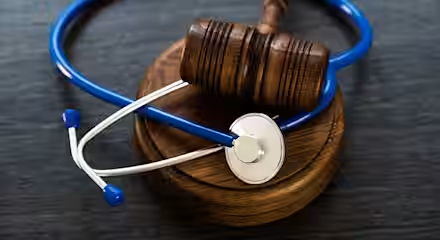During a vaginal delivery, the pudendal nerve stretches. Usually, this resolves itself within a couple of weeks after delivery, but for some women, particularly those who have had a difficult labour, the pudendal nerve can become permanently damaged, resulting in pain, pelvic floor weakness and sometimes incontinence.
Do I have a pudendal nerve damage claim?
You may have a medical negligence claim if your labour was mismanaged and involved a difficult delivery, or your baby should have been delivered by Caesarean section and was not and, as a result, you suffered pudendal nerve damage.
Pudendal nerve damage can occur at the same time as 3rd or 4th degree perineal tears which are not properly repaired and are therefore mismanaged. Unlike tears, however, nerve damage cannot be repaired.
Pudendal nerve damage is an unfortunate but accepted risk of vaginal delivery. It cannot normally be attributed to medical error, as it can be a natural consequence of childbirth. However, there are examples of damage occurring due to the labour being mismanaged. For example, these injuries can occur if the patient's labour has been allowed to continue for too long or if a C-section should have been considered or performed but was not.
Substandard maternity care resulting in or associated with pudendal nerve damage can include:
- Not appreciating risk factors for perineal tears and pudendal never damage and failure to advise properly before giving birth.
- Failure to take steps before or during childbirth to minimise the risk of tearing and nerve damage.
- Failure to manage the labour and delivery properly.
- Inappropriate or incompetent instrument delivery
- Failure to progress to a C-section.
- Failure to properly diagnose and repair a tear immediately following delivery, resulting in incontinence and associated nerve damage.
- Delay in diagnosing a tear and pudendal nerve damage.
- Failure to react to signs of infection, abnormal or unusual symptoms.
Read more about 3rd and 4th degree perineal tear claims.
In some circumstances, regardless of a mismanaged tear, pudendal nerve damage would have occurred anyway and is therefore argued not to be negligent.
Our medical negligence team
We have vast experience dealing with such cases, which can be complicated. We are happy to discuss your situation over the phone free of charge to advise whether you may have a claim.
Our award-winning team believes in putting clients first. We are dedicated to achieving the best results possible and pride ourselves on our sensitive approach. Any of our birth injury claims experts below will be pleased to discuss your case and offer free advice over the phone.




Contact us
For a free, no obligation call with one of our medical negligence experts, please dial 0800 358 3848 or complete our online enquiry form.













